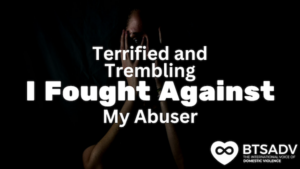If your teen was in an abusive relationship, would you recognize the signs? According to Love Is Respect, 81% of parents with teens were not aware that teen dating violence was even an issue, yet, teen dating violence (TDV) is far more common than most people think. Approximately 1.5 million high school students nationwide are victims of abuse each year. While domestic violence is being addressed more in the media as victims speak out and share their stories, teen dating violence is rarely mentioned. 82% of parents feel that if their teen was in an abusive relationship they would know, yet over half of those parents were unable to identify the warning signs of TDV.
According to What Every Parent Must Know About Teen Dating Violence, some warning signs that are expressed by the victim include:
- Change in appearance, sleeping habits, diet, or personality,
- Lose interest in school or extracurriculars and lower grades,
- Become withdrawn and secretive,
- Withdraw from friends and family,
- Defend or apologize for their dating partner,
- Constantly check phone or reply quickly, or become upset if they are unable to respond to their partner,
- Unexplained bruises, scratches, or other injuries,
- Depression, anxiety and suicidal thoughts,
- Engage in unhealthy behaviors like drugs and/or drinking,
- Become hostile, aggressive, or easily angered.
The highest rate of domestic abuse occurs between the ages of 16 and 24. Just like domestic violence, TDV occurs in many forms: physical, emotional, verbal, sexual, financial, and digital. Many teens are unaware that the relationship they are in is unhealthy, mainly because they are unaware of what a healthy relationship looks like. One of the biggest ways to prevent TDV is to teach your children about healthy relationships long before they begin dating. The earlier they learn about boundaries, warning signs, and healthy sexuality, the more confident and aware they will be when they begin dating.
According to The National Domestic Violence Hotline some traits of healthy relationships that all adolescents (and adults) should be aware of are:
- Safe communication,
- Trust for both partners,
- Setting and respecting boundaries,
- Mutual respect,
- Honesty,
- Equally say in decision making,
- Spend time apart,
- Mutually agree on sexual decisions,
- Financially independent or mutually agree on expenses,
- Use supportive parenting skills,
- Healthy conflict resolution.
Starting early to teach your children about healthy sexuality is another important part of prevention. According to Promoting Healthy Sexual Development and Sexuality, 5 to 10 years old is a good time to begin teaching age-appropriate healthy sexuality. You can discuss puberty, changes to expect, and eventually advancing to the risks of pregnancy and STDs from sex. Each child matures at different levels and parents are the best judges of how much your child can understand and is ready for.
It is important to talk about online safety, not sharing inappropriate pictures, visiting certain sites, and that it is okay for them to talk to you at any time if they feel they are being digitally pressured. Adolescents should also learn that the world around them, on social media, the internet, movies, and friends may all have different opinions about sex–and don’t always exhibit healthy relationships or sexuality. The more involved parents are from the beginning, the more influence they will have over their children’s sexual decisions. While adolescents should be taught that abstinence is always the best way to stay safe, they also should be encouraged to come to a parent or someone else they trust to get information and resources about safe sex.
You have the ability to start early, educate your children about sexuality, and help them recognize the difference between a healthy and unhealthy relationship. There are many resources online to aid in teaching healthy sexuality and preventing teen dating violence. The Centers for Disease Control and Prevention has created a program called Dating Matters, which provides strategies and materials that are easily accessible to promote positive and healthy teen relationships. Knowledge provides power and awareness for both you and your children to identify a victim and recognize the warning signs. The more involvement you have with them, the more comfortable they will feel coming to you if they are in need of help or have questions.
If you or someone you know is in an abusive relationship, there is help. You can visit the Break the Silence Against Domestic Violence website at www.breakthesilencedv.org or chat with one of our helpline advocates at 855-287-1777.










